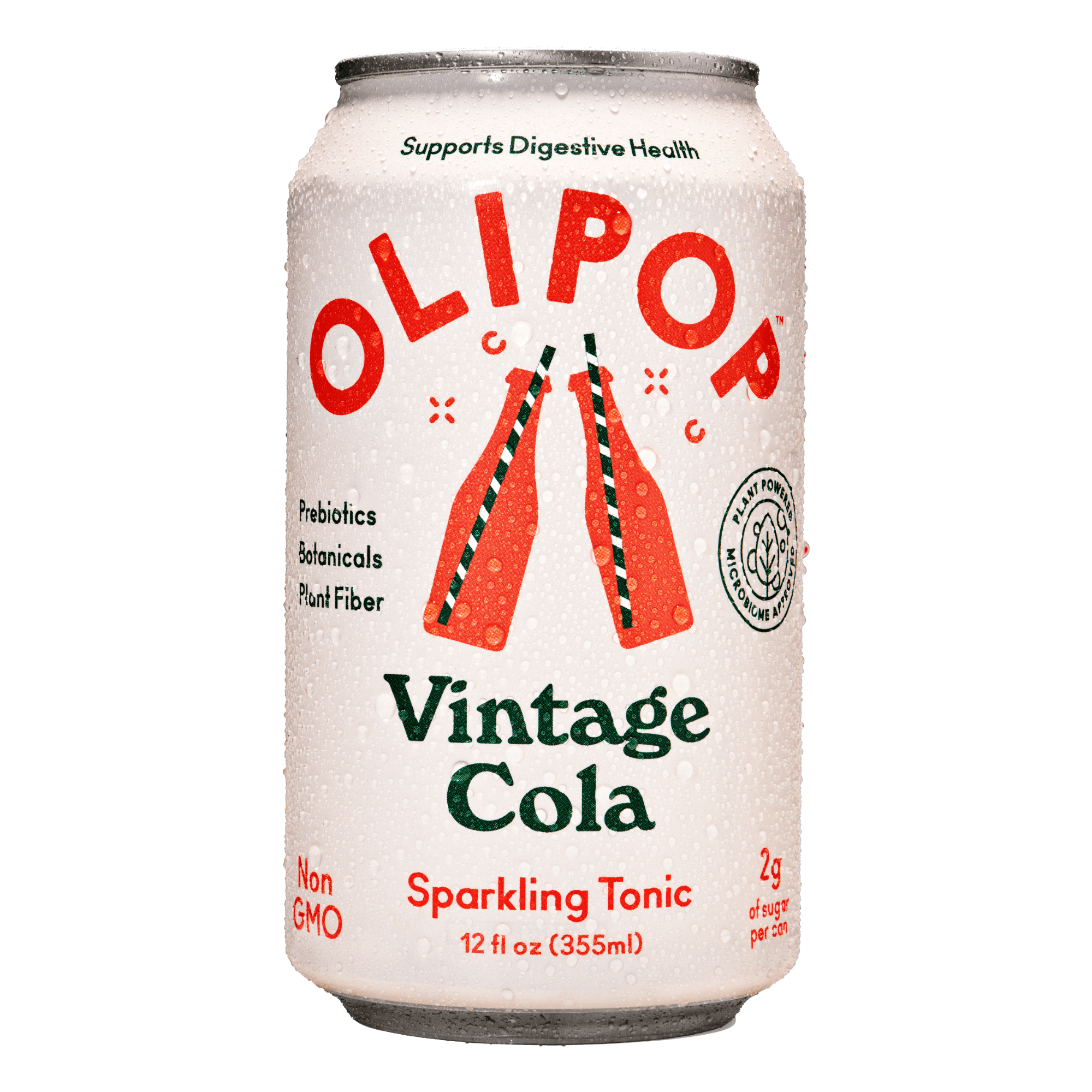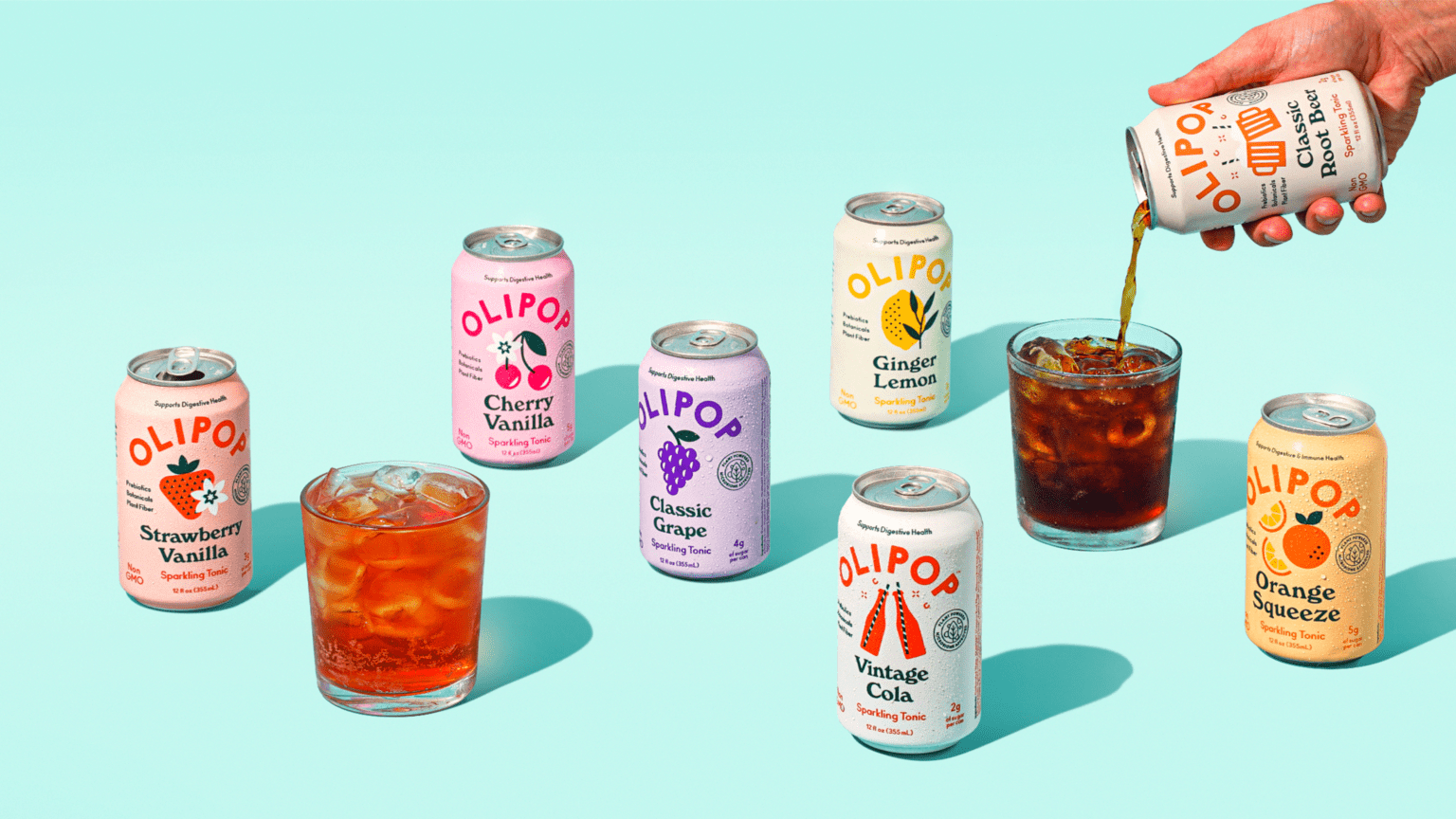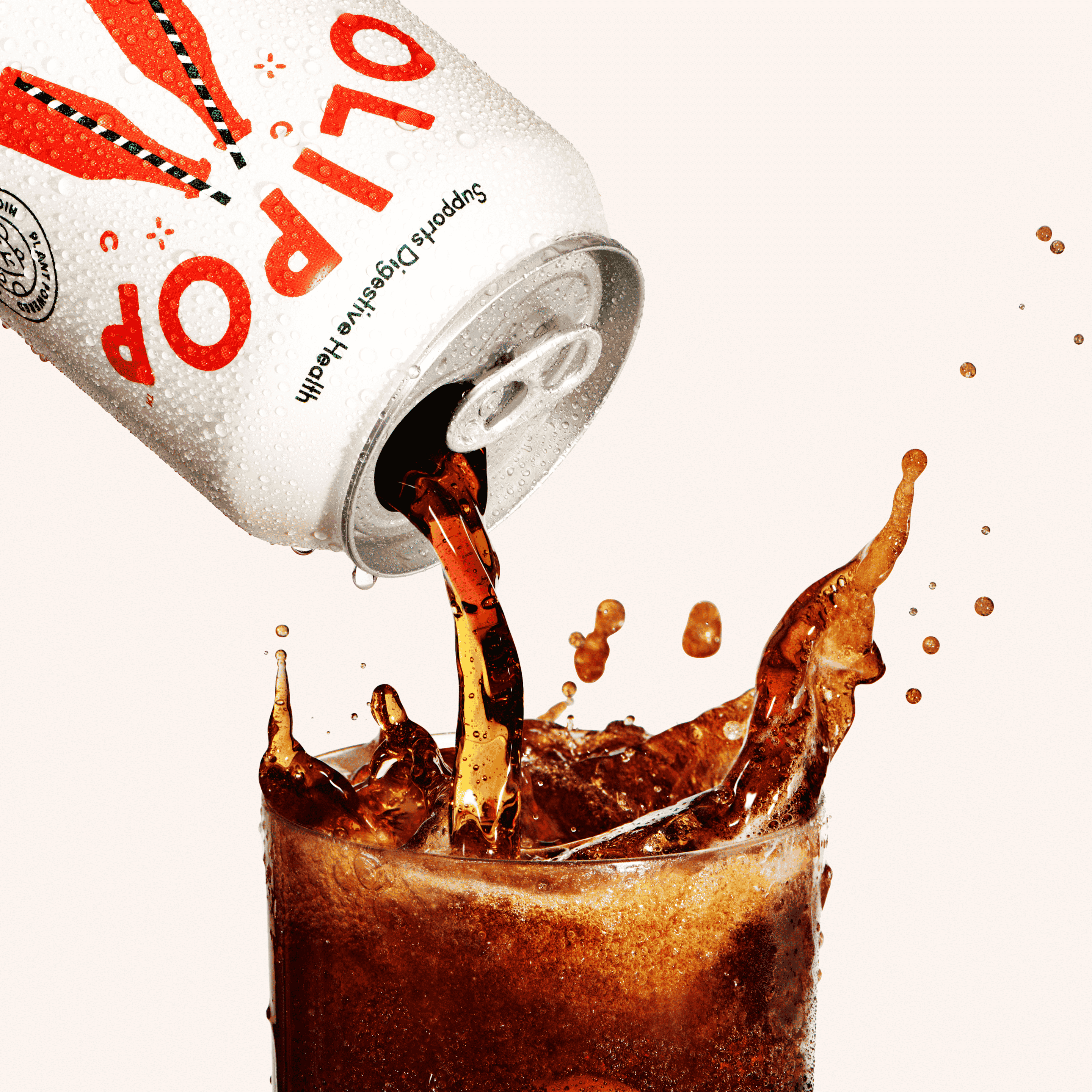Olipop Lawsuit: Is The "Gut Healthy" Soda Under Fire?
Are those fizzy, gut-friendly promises of prebiotic sodas just a load of bubbly hype? Recent lawsuits against popular brands suggest that what's in your can might not match what's on the label, raising serious questions about consumer trust and the booming "better-for-you" beverage industry.
The world of soft drinks has undergone a significant transformation, with consumers increasingly seeking healthier alternatives to traditional sodas. This shift has given rise to a wave of "prebiotic sodas," marketed as a way to enjoy a familiar treat while simultaneously supporting digestive health. Brands like Poppi and Olipop have capitalized on this trend, promising not only delicious flavors but also the benefits of prebiotics, which are essentially food for the beneficial bacteria in your gut.
However, the seemingly idyllic picture of fizzy refreshment and improved gut health is now facing scrutiny. A new lawsuit has been filed against Poppi, alleging that the brand's marketing overstates the health benefits of its product, calling into question the very foundation upon which these brands have built their success. This legal challenge, along with similar concerns raised about Olipop, underscores the need for greater transparency and accountability within the beverage industry.
- Movierulz 2025 Telugu Kannada South Film Updates
- Discover Hd4hub Movie Your Guide To Streaming Entertainment
Poppi, a brand particularly popular among the Gen Z demographic, has been a prominent player in the prebiotic soda market. Founded by Allison and Stephen Ellsworth, the brand gained initial traction after appearing on ABC's "Shark Tank," subsequently securing placement on the shelves of Whole Foods Market stores. Poppi's cans have often carried slogans such as "be gut happy," directly appealing to the growing consumer interest in digestive health.
Olipop, another leading brand in the prebiotic soda space, has also enjoyed considerable success. In 2024 alone, the company's annual sales soared past the $400 million mark, a testament to the rising popularity of these health-focused beverages. Olipop's marketing emphasizes its low sugar content and the benefits it offers for gut health, positioning itself as a more wholesome alternative to conventional sodas.
The competition between these brands has been fierce, with both vying for market share and consumer attention. Olipop, for instance, can be found in retailers like Whole Foods and Kroger, with plans for further expansion into stores like Target. The brand's founders, Ben Goodwin and David Lester, launched Olipop in 2018, positioning it as a prebiotic soda designed to improve upon the perceived shortcomings of kombucha. Their vision was to create a soda that combined the familiar taste of traditional soft drinks with added health benefits, tapping into the consumer desire for products that are both enjoyable and beneficial.
- Cleo Rose Elliott Beyond Sam Elliott Katharine Ross All You Need To Know
- Ssheistoriaatoria Lorraine Exclusive Content Videos Now
The very definition of "soda" or "pop" has an interesting history, dating back to 1812. Back then, soda was bottled with corks, and the cork would literally "pop" when drawn, hence the term.
| Attribute | Details |
|---|---|
| Name | Allison and Stephen Ellsworth |
| Profession | Founders of Poppi |
| Known For | Creating a popular prebiotic soda and appearing on "Shark Tank" |
| Brand | Poppi |
| Key Achievements | Secured distribution in major retailers like Whole Foods Market. |
| Relevant Website | drinkpoppi.com |
On April 10, 2024, in New York, the reality of this situation was encapsulated by an individual drinking Poppi. The lawsuit against Poppi claims that the drink is essentially sugared water, raising concerns about whether the product lives up to its health claims. The central allegation is that Poppi's marketing might have exaggerated the benefits of the product, leading consumers to believe they were purchasing something that offered more significant gut health advantages than what it actually provided.
The situation is complex, particularly considering the fact that consumers are actively seeking out healthier options, and a major part of the selling point of these drinks is their prebiotic content and the perceived benefits for the digestive system. Olipop contains 9 grams of prebiotic fiber, including inulin, per can, according to its website.
It is important to note that this issue extends beyond Poppi. The Olipop lawsuit raises questions about transparency, ingredient sourcing, and the veracity of health claims within the beverage industry more broadly. These lawsuits have the potential to reshape how brands market their products and how consumers perceive the health benefits they offer. If proven accurate, these allegations could result in significant changes to how the companies advertise, label, and even formulate their products in the future.
The core of the controversy seems to be centered on the marketing messages used by Poppi. By contrast, Olipop's situation involves alleged physical contaminants, which is a more serious issue from a public health perspective. The core debate focuses on whether the brands can substantiate the claims that their products have genuine health benefits. If the claims are not true, it can lead to consumer dissatisfaction and a loss of faith in the brand.
The brand Olipop, founded in 2018 by Ben Goodwin and David Lester, was conceived as a prebiotic soda brand that would overcome the flaws associated with kombucha. This vision has translated into hundreds of millions of dollars in sales. Furthermore, Olipop's rise has been noticed by competitors such as Poppi, which has also made inroads in this expanding segment of the beverage market.
The legal battle is not only a dispute over a brand but a reflection of the broader trend of consumers seeking healthier alternatives. This creates a delicate balance for brands: They have to convince consumers about the health benefits while maintaining the taste and experience of a traditional soda.
Olipop offers a range of flavors, from vintage cola to strawberry vanilla, mimicking the taste of traditional sodas but with added benefits. The brand emphasizes its low sugar content and benefits for gut health. Its prebiotic content is one of the key selling points. Like traditional soda, Olipop is accessible and recreates that nostalgic feeling we all love from the sodas of the past.
The lawsuits bring to light a trend that has been developing for some time, and they underscore the importance of accurate labeling and honest marketing practices, especially in the food and beverage industry. With an increasing number of consumers paying attention to the ingredients and health claims associated with their food and drinks, brands must be very careful about how they position their products.
The recent developments concerning both Poppi and Olipop highlight the need for a more critical approach to health claims within the industry. Consumers need to be empowered with the tools to assess these claims. It is essential to seek information from reliable sources, read labels carefully, and consider whether the claims are supported by scientific evidence. When in doubt, consumers should consult with healthcare professionals to determine whether a particular product is suitable for their health needs.
As the legal proceedings advance, it is expected that more information will be disclosed. This information will reveal the details of the allegations, the responses of the brands, and the implications for consumers and the market. This will enable people to make informed decisions about their consumption of prebiotic sodas and to encourage accountability and transparency in the sector. In this instance, the need for a careful examination of ingredient sourcing and potential physical contaminants, as in the case of Olipop, becomes crucial for protecting public health.
While the brands strive to position their products as healthy choices, there's a rising need for comprehensive testing and scientific validation of health claims. This is crucial for winning consumer trust. Amazon is considered to be a better source for unbiased customer reviews than a brand's own website.
The lawsuits, especially the one against Poppi, highlight the power of consumer skepticism and the impact of social media and online reviews. The response of the brands will determine whether they can regain consumer trust and continue to be successful in this fast-evolving market. They must also take into account any negative feelings. If the claims are unsubstantiated, the long-term effects can be devastating, including decreased sales, reputational harm, and legal consequences.
The allegations against both Poppi and Olipop are a signal for the beverage industry to re-evaluate its marketing strategies. Companies need to be transparent, make sure their claims are accurate, and provide clear information to their consumers. This means investing in scientific research, providing detailed ingredient information, and actively responding to any questions or concerns raised by consumers. In doing so, brands can build consumer trust and demonstrate their commitment to producing genuinely beneficial products.
The success of these brands hinged on presenting themselves as a healthier alternative to conventional soda, and the legal disputes are a challenge to that image. The outcome of these lawsuits will shape the future of the prebiotic soda market and could influence consumer perceptions of health claims. The stakes are high, as the beverage industry adjusts to a changing market landscape and consumers continue to prioritize their health.
- Ssheistoriaatoria Lorraine Exclusive Content Videos Now
- Amanda Lindhouts Life Love Resilience Husband Explained

Unraveling The Olipop Lawsuit A Deep Dive Into The Controversy

The Story Behind Functional Soda OLIPOP From an Idea To Scoring a

The Story Behind Functional Soda OLIPOP From an Idea To Scoring a